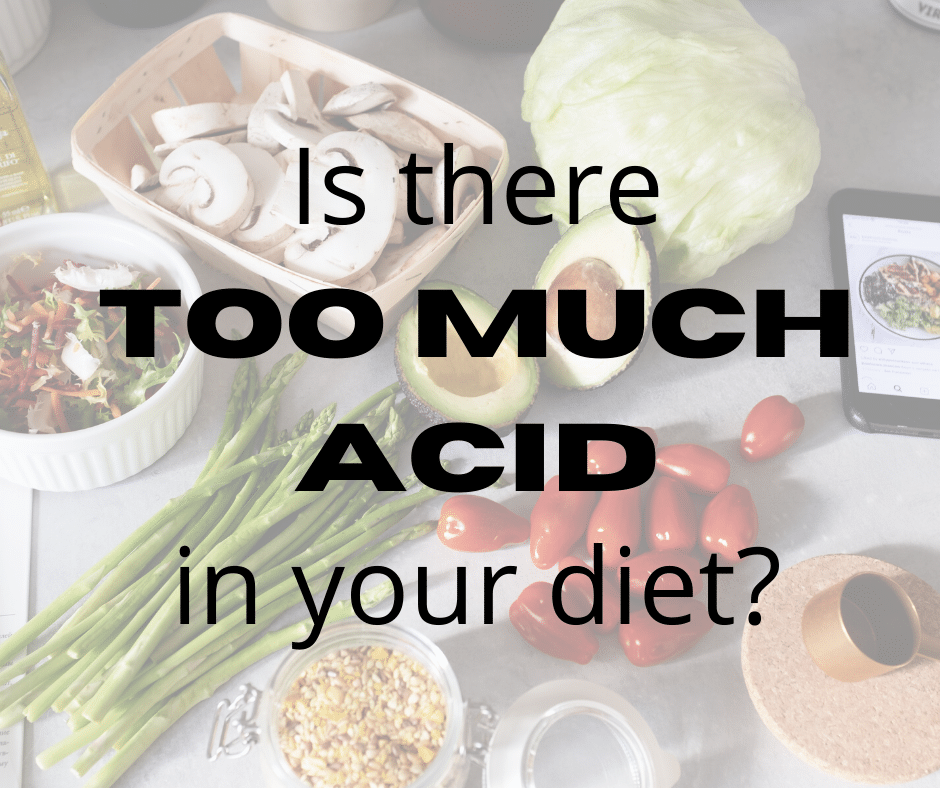It’s no secret that most health-related problems can be attributed to lifestyle and eating habits. It stands to reason then that heart problems and strokes can be avoided if we just eat better and adopt healthy lifestyle habits.
That said, it’s easy to remove greasy and junk food out of your life and call that healthy. What is lacking though is enough awareness of acidic foods that are secretly killing you. It’s the hidden acids in those foods that create long-term health impacts.
So, before we delve in too deep, let’s get to the bottom of this and get our fundamentals straight!
What Does pH Balance in Food Mean?
The pH value refers to the level of acid or alkaline in food. Ideally, you should consume foods that have an optimal pH balance. Acidosis is a condition where the body gets too acidic. Whereas with alkalosis, the body is either too alkaline or normal. The types of foods you consume every day influence the pH level of the body.
In a nutshell, eating food that is too acidic may have a detrimental impact on overall wellbeing. However, consuming alkaline foods helps to adjust the body to the correct pH level.
The pH value indicates whether it is an acid, a base, or neutral.
- High Acidity: 0.0 to 6.9
- Neutral: 7
- Alkaline or Basic: 7.1 to 14.0
Basically, all below pH 7 is acidic, and everything above pH 7 is alkaline.
The different areas of the human body have varying amounts of pH. In the stomach, pH levels vary from highly acidic to mildly alkaline. Human blood mildly alkaline with a pH of approximately 7.35 and 7.45.
The pH of your food obviously plays a significant role in the processing of food.
Why worry about the pH levels in food?
It is important to consume food that has an alkalizing effect on the body. Many foods that we regularly consume either are acidic or create acidic byproducts when digested.
Generally speaking, alkaline foods are healthier food options. They contain organic veggies and low-sugar items. Not so healthy, and therefore acidic options are sweets, coffee, tea, beer, meat, fast food, and several dairy items. Stress, nervous pressure, noise, and lack of exercise all lead to the acidification of the body.
For example, a diet consistently high in acidic foods contributes to the formation of kidney stones. This happens when the compounds of certain food cause a build up of uric acid. The pH imbalance in the kidneys coupled with the high uric acid concentration makes it easy for kidney stones to form.
Now, since it should be clear why there are specific pH levels for every food item. Let’s have a look at the relatively less obvious acidic foods that you might have been eating every day.
Less Obvious Acidic Foods
For optimal health, it is important to have basic knowledge about how acid and alkaline compounds influence the body.
Here are 5 food items that appear to produce more acidity in the body which may need to be restricted or avoided. They include:
Meat and animal products

Meat and all animal products start out alkaline. Once digested, they create acidic byproducts in the body. As a less acidic substitute to animal protein, plant protein products such as chlorella and spirulina produce a smaller level of purine. Purine raises uric acid levels.
By the way, animal products that are acidic also include certain species of fish and shellfish.
Grains

Non-glutenous grains such as brown rice, quinoa, and buckwheat are considered acid-forming but rank lower on the acidity scale.
It is advised to avoid gluten grains not only because they are difficult to ingest and induce inflammation in the stomach, but also because they are acidifying.
Legumes

Legumes are known to be moderately acidifying products, but they also have many health benefits. Resultantly, it is not important to eliminate legumes entirely but to consume them in moderation and combine them with alkalizing foods.
Alcohol

Next we have is alcohol. Alcohol is a strongly acidifying substance that, when metabolized, robs the body of alkali minerals such as magnesium.
Keeping all of this aside, did you know alcohol can also aggravate stomach aches in those whose digestive systems are prone to strongly acidic foods? So, that’s definitely something to watch out for!
Refined Sugar

White or refined sugar – like soda, muffins, pastries, cookies, white bread, and processed grains, among other “leisure” products – is extremely acidic.
Some of the reasons that certain people produce low blood pH is that packaged products containing many grams of added sugar are abundant in our diets as snack foods.
In addition to all this, you can choose to avoid high-phosphorus beverages such as beer or hot chocolate produced from packets of cocoa mixture. Mineral soda or sparkling water could be a better alternative to go for. When you choose to consume alcohol, go for a smaller quantity of arsenic, red or white wine.
Fruit

Lemon juice and tomatoes, for starters, are acidic. But when they are ingested, they stimulate alkalinity. The pH of the individual food does not assess the net impact on the body. Rather, it is the “potential renal acid load,” or PRAL, of a food-a quantity that determines the excretion of acid in the urine as it defines where it falls within the acid-alkaline balance.
All in all, if you believe that you have issues with acidity, you should make changes to your diet to help stabilize your symptoms. Keep in mind that foods known to be acidic will have a pH rating of 4.6 or less.
Long-Term Negative Effects Of Acidic Foods On Your Body
Acidic blood contributes to a wide range of health problem. When the body can no longer regulate excess acid in the body, acidosis can result.
Acidosis
Acidosis occurs when your body’s fluid contains too much acid. Typically, your kidneys and your lungs can regulate the body’s pH balance. Why they can’t, the result is an excess accumulation of fluid.
The impact on your health is cross-cutting:
- Cardiovascular damage
- Kidney stones
- Digestive issues
- Immune deficiency
- Inflammation
- Lack of energy
- Risk of infection
- Depression and stress
Not to mention, bacteria and viruses thrive in an acidic environment, and any state of acidosis will make your body more susceptible to bacterial and viral infections.
Conclusion
All in all, as far as your health is concern, then according to studies, alkaline diet is a rather healthier option and will work because of the focus on growing plants and reducing processed foods than on increasing your body’s pH. Eating the seasonal fruits and vegetables, along with restricting your refined starch, sugar, and dairy consumption, can or may not better improve your body’s pH levels.
Besides this, its best that you decrease your daily consumption of sugar and adding more greens to your diet has several health benefits and can minimize everyday issues and reduce the potential for many long-term health effects.

